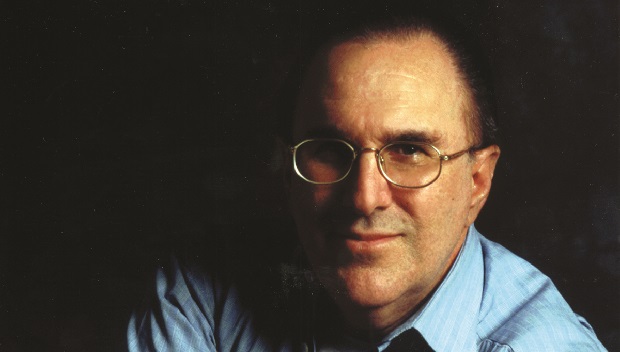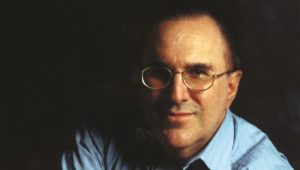The Good & The Great
Legendary songwriter Bill Withers took the stage to be interviewed before an audience of thousands.
It was the ASCAP “I Create Music” EXPO 2010, three days of workshops, performances and hands-on mentoring and instruction from the who’s who of the music industry. As one of the organizers, I stood in the back, looking across the crowd at Mr. Withers. A question came to him from the floor.
“As an aspiring songwriter,” the woman said, “what do you suggest I do?”
Mr. Withers took a long pause and with what seemed like great consideration, he said, “Well, if you want to be a songwriter,” pause “I suggest you write songs.”
The crowd erupted in laughter. He continued. “You know,” he said, “every Sunday, all across the country, people crowd around their televisions to watch NFL Football, and everyone thinks they can
play quarterback.” Pause, more laughter, “And, nine of them can.”
Total silence
It was intriguing and uncomfortable, a piercing dilemma. Was he saying enjoy the craft, but you’re probably not going to be a “successful” songwriter; however one may interpret that success – being seen and heard? fame and fortune? Or, was he saying there are a few of you, sitting in this room today, who have the talent and ability to ‘make it,’ so go for it. Or, wisely, was he just allowing each of us to fill-in the blanks for ourselves.
The Good is the Enemy of the Great?
I was at a Passover Seder several years ago. My friend’s father, Michele, was there, an older man, steeped in Jewish mysticism. In a discussion at the dinner break, about our various worldly pursuits,
I said, “You know, there is this saying, ‘the good is the enemy of the great.’ The idea that we should never be comfortable with the good, but be willing to leave it or even destroy it, in pursuit of the great. But, I’ve come to believe that the opposite is true, that the great is the enemy of the good.”
Michele practically leaped out of his chair with a big “Yes” of affirmation. To him, there was haughtiness to the exhortation of the “great,” a haughtiness that makes us blind to what is good all around us. There was so much good right there in that room, in that moment of sharing ideas and tradition and breaking bread with family and friends. It is these kinds of things that somehow get taken for granted, unrecognized, unappreciated, un-enjoyed and, perhaps, destroyed in the pursuit of the “great.” But, where would we be without greatness?
Is this a riddle? Is there an answer?
In this digital polarized world, we seem to demand absolutes, a black or white, a yes or no. Life is richer and more complex, we know that. Yet, some organizations, in pursuit of the great, embark on what they think of as creative destruction, and become the source of destructive destruction. An organization can create a steady stream of innovation by investing goodness in their employees, empowering their workforce and thereby enriching them and all stakeholders. In our personal lives, we may sometimes have to make choices between one step ahead in prestige or money and the effort to continuously grow to be deeper, richer, fuller people.
I’m no Sunday school teacher, but if we go back to the Passover story, Moses did not leave the life of comfort and luxury in the Pharaoh’s palace to aspire to greatness. He was already a prince, a position that could be perceived as greatness. He was moved to action because he was deeply pained to know and see the cruel enslavement of his people and was determined to change their destiny, to bring them freedom. By following his deepest beliefs in pursuing goodness for his people, he achieved greatness…and not for himself, but greatness for his people and for generations to come.
Maybe there is greatness all around us that we fail to see.
The single mom, who rises before dawn, prepares her kids for school, drops them off, works all day, shops, cleans, puts dinner on the table, keeps a roof over their heads and reads to them before they go to sleep. Can you not find greatness in that great goodness? How many generations will benefit from that?
Good To Great
In the bestselling business book from the 1990’s, Good To Great, one of the companies that ascended to become “Great” had enacted a policy that brought forth the scene described below.
“Executives did not receive better benefits than frontline workers. In fact, executives had fewer perks. For example, all workers (but not executives) were eligible to receive $2,000 per year for each child for up to four years of post-high school education. In one incident, a man came to an executive of the company, Marvin Pohlman, and said, “I have nine kids. Are you telling me that you’ll pay for four years of school — college, trade school, whatever — for every single one of my kids?” Pohlman acknowledged that, yes, that’s exactly what would happen. ‘The man just sat there and cried,’ said Pohlman. “I’ll never forget it. It just captures in one moment so much of what we were trying to do.”
That is greatness achieved through the pursuit of goodness.


